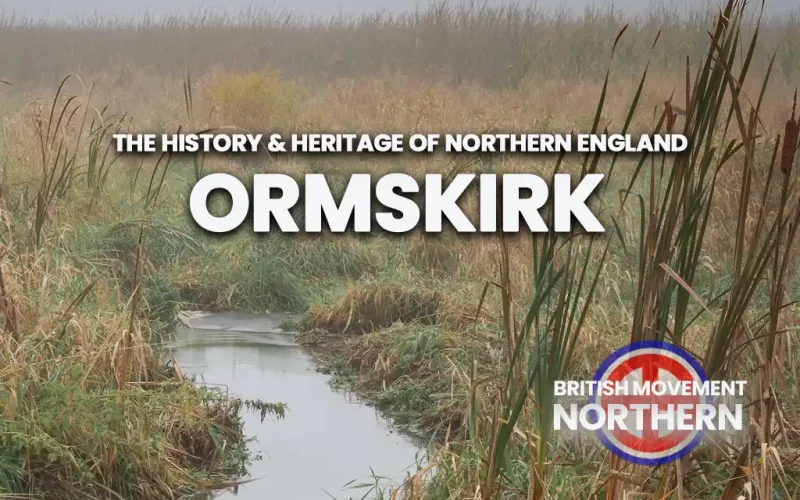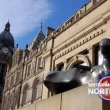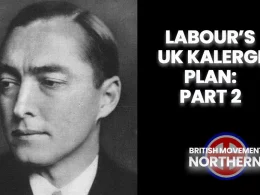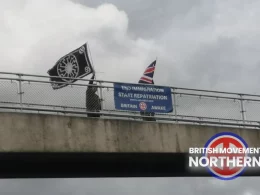Most experts believe the towns name originated in the 10th Century when a Viking settler, a convert to Christianity, established a farmstead and a small church. The name derives from the Old Norse ‘Ormres kirkja’, which is taken from the Viking name “Ormres or Orm” and “kirkja” a church.
So far there are no significant traces of a settlement in pre-history, and prior to the Roman occupation of the North-West, the area was under control of the Celtic tribe the Setantii. There is also no recorded Roman settlement in the area of modern Ormskirk, but the Roman road from its crossing point on the river Mersey ran up through the area as the Roman army linked its garrison at Chester with its ports and forts along the North West coast.
In the Anglo-Saxon period the area was ruled by the Kingdom of Northumbria. When the Kingdom of Northumbria fell under control of the Danelaw, the area saw Viking settlement in the 9th Century by Norse Vikings who were colonising the North-West coast and moving inland.
In the years after the Norman Conquest, there is no record of Ormskirk in the Domesday Book but this region of the North-West did come under the control of Norman overlords after the North of England was pacified. In 1189 the Lord of Lathom granted the church at Ormskirk to Burscough Priory. Burscough Priory was first established in the 12th Century by the Black Canons, part of the Augustinian Order of monks.
For medieval taxation and adminstration purposes Ormskirk was included in the Hundred of West Derby. In 1286 King Edward 1st granted the small town a market charter and Ormskirk has remained known as a West Lancashire ‘market town’ ever since. In the Tudor period, Burscough Priory fell foul of King Henry the Eighth and in 1536, the Priory was surrendered to the Crown as part of the Dissolution of the Monasteries.
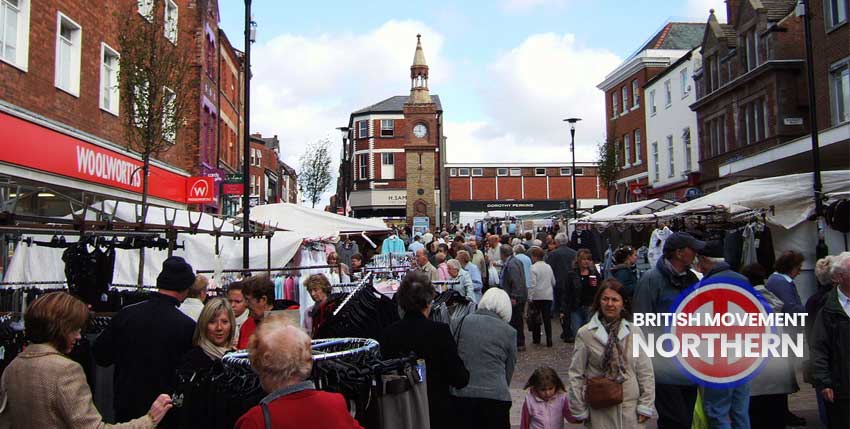
The English Civil War
While most of West Lancashire stood for Parliament, there were Royalist pockets within the region. 1644 saw the Siege of Latham House when a small Royalist force were besieged there, holding out against Parliamentary forces until a reluctant surrender in 1645. Elsewhere there were infrequent armed clashes and skirmishes between the opposing forces, one significant confrontation in the Ormskirk area being at Aughton Moor in 1644 following which the parish church of Ormskirk was bombarded by cannon fire.
In 1648 in the immediate post-Civil War period, the local aristocrat and leading royalist the Earl of Derby was captured by Parliamentary soldiers and was taken in chains to Bolton where he was beheaded. His body was brought to Ormskirk and buried in the grounds of Ormskirk Parish Church.
In the 18th Century Ormskirk began to benefit from the improving road networks linking Chester and Liverpool to Preston and Lancaster, local coaching inns were established and a Turnpike road to Liverpool was maintained from 1770 onwards. The Industrial Revolution did not have a major impact on Ormskirk, local industry was small scale and limited to brewing, rope-making, hat and glove manufacturing, small metal workshops and a foundry. The railway network reached Ormskirk in 1849.
Never an industrial centre, always a market town, Ormskirk maintained a small population, in 1900 the town population was roughly 6,500 and grew gradually across the 20th Century to the point where in 1981 it numbered only 15,000.
Ormskirk is a White Town; the most recent census data gives the population break down as 98.0% White British and other White nationalities, which includes Irish and Eastern Europeans. The largest ethnic minority group, in keeping with other towns in Lancashire is Asian, but this minority numbers only in the hundreds, not the thousands.
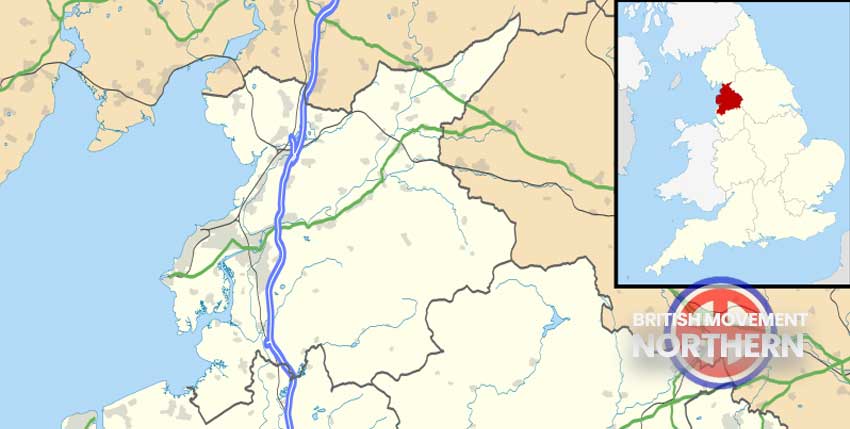
Resources
Middle Image: Market day in Ormskirk: Small-town hero, Public domain, via Wikimedia Commons.
Bottom Image: Contains Ordnance Survey data © Crown copyright and database right, CC BY-SA 3.0, via Wikimedia Commons.
The British Movement welcomes articles for possible inclusion on this site from members and supporters across the North of England. Please remember that we have to operate within the laws of this country – we will not include any content that is against the current laws of the United Kingdom. News reports should be topical and be relevant to the regions covered by this website.






